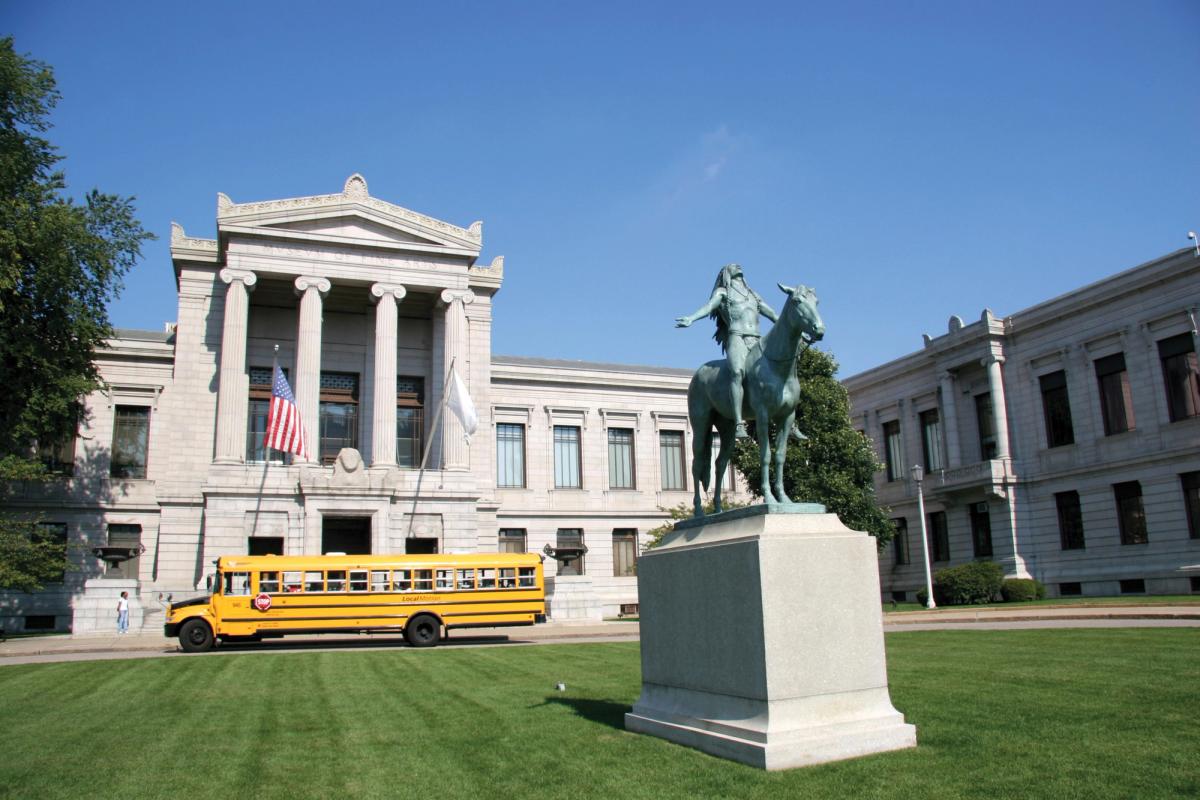The Civil Rights division of the Massachusetts attorney general’s office is investigating an incident at the Museum of Fine Arts (MFA), Boston that occurred on 16 May, in which a group of honours middle school students and their chaperones on a visit from the Helen Y. Davis Leadership Academy in Boston reported being racially profiled and harassed by museum patrons, volunteers and staff. The office contacted the school and museum after media reports about the trip, says a spokeswoman for the attorney general Maura Healey.
Together with their teachers, the students, all of whom identify as persons of colour, filed a complaint in person that day, before abruptly leaving the museum. The group reported being followed uncomfortably closely by security guards, and while on their way to an African art gallery hearing a visitor loudly and offensively comment, “Never mind, there are [expletive] black kids in the way”, among other instances of harassment.
The MFA formally apologised to the students in an open letter published on 22 May, referring to the incident as “a range of challenging and unacceptable experiences” and concluding, “that is not who we are or want to be”. Makeeba McCreary, the museum’s chief of learning and community engagement since January, contacted the academy within the week the complaint was made.
In late May, the MFA hosted two extremely heated Instagram question and answer sessions with the public in which members of senior management responded to concerns and announced further actions to be taken, such as scheduling unconscious bias and conflict resolution training for staff and volunteers, and posting additional staff to the school group entrance. Although the museum identified the visitors and volunteers who made offensive comments and have subsequently banned two patrons from the premises, no staff members were fired.
“We were unhappy with the determinations and lack of responsibility taken by the museum on behalf of its employees,” says Arturo Forrest, the academy’s principal, of the MFA’s decision to retain the staff involved. He also feels that the museum’s efforts at crisis management were rushed.
On 12 June, the MFA announced that it had separately hired the former Massachusetts attorney general Scott Harshbarger, of the Boston-based law firm Casner & Edwards, to run an independent external investigation into the incident. Museum officials declined to be interviewed by The Art Newspaper, saying that they are unable to speak as a result of the external investigation.
Young people need to interact with curators 'who look more like them'Elon Cook, the director of the Center for Reconciliation
The MFA should publicly acknowledge necessary institutional changes, including a transparent system for hiring more persons of colour for curatorial and administrative roles, says Elon Cook, the director of the Providence-based non-profit Center for Reconciliation, who focuses her curatorial research on the relationship between race and art. (Among the seven members of the MFA Leadership Team who signed the open letter on 22 May, McCreary was the only person of colour.) Young people need to interact with curators “who look more like them”, Cook says. Guards should receive regular training, she adds, since they often have a police background “and don’t realise the way in which visitors are experiencing the security in the space”.
Museum officials have met with the students who attended the 16 May field trip and formally invited the group to return. But several of the students told Forrest that they “are never going back in there”, he says. “The irony of it is this isn’t like Greek art; this work is part of their lives, and experiences like this are literally taking away from academic growth.”
• Full disclosure: the writer is a member of the MFA Boston’s Museum Council


